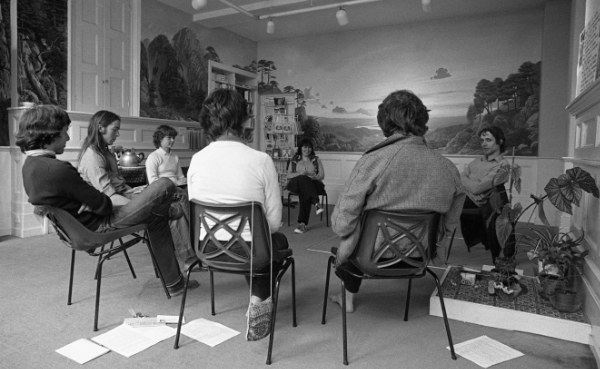Governance resources
Aimed at Chairs, Directors and Trustees (board members)
Any questions or suggestions, please email:
info@triratnadevelopment.org

Legal requirements
As trustees, board members, directors or Chairs of a legal entity, you have responsibilities that will sometimes feel weighty.
But knowledge is power (and freedom from anxiety!) so let’s share our knowledge…
Some basics
- be clear what sort of legal entity you are
- know how to refer to your constitution (governing document)
- know when you are required to report, submit accounts etc
- know what information/changes you need to let authorities know
- know what records of meetings are needed
- know what number of people constitutes a ‘quorate’ meeting
Model Policies
Here is a set of ‘model policies’ for consideration by Triratna Centres. They have been edited from policies used by Windhorse:Evolution, Karuna, the Birmingham and London Buddhist Centres, and others – we’re grateful to them for permission to reproduce them here.
Please note that you will need to check for yourself that the policies suggested here will meet your needs and that they satisfy current legislation.
They have been developed using the recommendations on the Charity Commission website, and ‘tweaked’ to suit the way Triratna Centres typically operate.
There is a good resource in www.bvsc.org which although Birmingham-based contains general information of value nationwide. You can also try vr.volresource.org.uk/org/policieschecklist which also has more policy samples than you would like to think were possible!
Here’s a link to the Charity Commission guidance regarding financial controls
Model Policies:
- Appointing Triratna Buddhist Centre Chairs
- Chair’s responsibilities and criteria
- Concerns and complaints model policy template based on Birmingham’s
- Disciplinary process model policy
- Genuine occupational requirement for Centre Chair
- Triratna sample contract for employment
- Support package and ethos statement in TBRL – model statement
- Financial controls model policy – 2009
- Room booking conditions
- Room booking checklist form
- Room hire checklist
- Membership of Triratna Charities draft model policy
- Conflict of interest draft model policy
The list of possible policies is extensive, so choose which ones are appropriate: here are 36 model policies to browse!
- Acting in Absence Policy
- Annual Leave Policy
- Authorisation Level Policy
- Bullying and Harassment Policy
- Compassionate Leave Policy
- Complaints Procedure
- Covid working from home Policy
- Disciplinary and Dismissal Policy
- Dress Code Policy
- Early and Late Working Policy
- Equal Opportunities Policy
- Equipment Policy
- Exit Interview Policy
- Fire Procedure
- Grievance Procedure
- Handover Notes Policy
- Health and Safety Policy
- House Rules
- Induction Policy
- Internet, Email and Social Media Policy
- Job Evaluation Policy
- Leavers’ Procedure
- Maternity, Paternity and Adoption Policy
- Performance Review Procedure
- Recruitment and Selection Policy
- Redundancy Policy
- Shared Parental Leave Policy
- Sickness Policy and Procedure
- Six-month Performance Review Procedure
- Statement of Standards of Behaviour
- Team Briefing Policy
- Time off in lieu Policy
- Trustee Expenses Policy
- Unauthorised Absence Policy
- Volunteer Policy
- Whistle-blower Policy
and finally here’s some policies (as a zip file) from Windhorse:Evolution which was a successful and large business, so these may be more Triratna-friendly/relevant than more generic ones: Windhorse Staff Handbook
Safeguarding
Although it is not a legal requirement in the UK to have safeguarding in place unless one is working with children or vulnerable adults, it is still highly recommended by the Charity Commission. We open ourselves to litigation and reputation loss if we don’t have effective policies and practices to ensure those using our Centres are safe.
More information on safeguarding on this page:
Setting up a UK charity
A Charitable Incorporated Organisation (CIO) is the form that the Charity Commission now suggest charities use – it has the benefit of limiting the liability of the trustees.
It is not that hard to do, honestly! The attached documents provide some helpful samples and advice but let us know if you think there is an important omission (info@triratnadevelopment.org) – the Development Team are not experts in charity law but will do what they can to help!
Please refer to our guide to setting up a charity in England or Wales.
Some Triratna centres will still use an older constitution (live google doc) and pdf-version which we include for reference
This may be a useful overview document
Risk Management
Risk management is something all organisations should be concerned about. Firstly here are some websites that will help:
https://www.gov.uk/government/publications/charities-and-risk-management-cc26
And some other documents and examples to help:
- Charities and risk management – UK Gov (pdf)
- example of risk review by Bristol
- another sample
- one from the LBC
- a template you could use
- and another template!

ECA meeting at Adhisthana, Jan 2023
Resources for Chairs
How to run meetings: a checklist
Before the meeting:
- plan the agenda in conjunction with other officers
- decide which items will be included, the purpose of their being brought up at the meeting, roughly how long each one should take, in which order they should come and who will introduce each on
- be well briefed about each item
- ensure all necessary background papers are sent out with the agenda beforehand
During the meeting:
The role of the Chair is to ensure full communication and effective decision making.
a) Communicate
- start the meeting
- welcome new members
- make any necessary introductions
- set the scene
- state the objectives of the meeting and each item
b) Control
- maintain control
- set out any time limits
- allow flexibility and freedom of expression
- keep to the agenda
- ensure time is used effectively
- ensure that proper minutes are taken
c) Co-ordinate
- highlight the areas of common agreement
d) Coax
- ensure full participation
- draw out quiet members
e) Compare
- weigh up contributions impartially
f) Clarify
- ensure everyone understands what is being discussed
- ensure that if jargon and abbreviations are used, all present understand them
g) Summarise
- ensure that when decisions are made they are recorded together with who is going to implement them and when
At the end of the meeting:
- check the date of the next meeting
- agree what special items will be put on the agenda of the next meeting and what work needs to be done, and by whom
- ensure that the minutes will be written up and checked by the Chair before being sent out amd clarify when they will be available
The role of the Chair - various info
- ECA handbook (live google doc)
- ECA aims and objectives
- other resources and guidelines:
The Association of Chairs have a lot of useful information (UK-based, but of general interest) www.associationofchairs.org.uk
The International Chairs Course
You could attend an online International Chairs Course with Jnanadhara, our International Movement Coordinator. They are typically 6 week long and run in September and October. These courses are a great way to meet other Chairs from around the world and deepen your understanding about how to make the most of being a Centre Chair. You can catch up with the material from a previous course here and here’s the page for 2025.
Feel free to get in touch with Jnanadhara if you wish: imc@internationalcouncil.online
This is the first (of 6) videos from the course – this one has a good introduction/overview of the course near the beginning.
Trustees, council/board members, Presidents
What trustees need to know
Charity Commission’s advice
The Triratna Trustees Handbook (live google doc)
The Triratna Trustees Handbook June 2023 pdf
UK mainly, but of general interest:
An organisation called Charity Excellence have some good resources for trustees:
- What Is Good Governance & How To Do It Well
- 20 Ways To Be A Good Trustee
- How To Increase Trustee Board Engagement
- 20 Ideas To Engage Your Trustees In Fundraising
- How To Recruit Trustees For Your Board
- How To Make Reports More Effective & Less Work
- How To Tackle The Lack Of Charity Trustee Board Diversity
You can also use the 6 short videos in the Charity Excellence
You Tube Governance Playlist for trustee induction and/or to create your own trustee training programme.
The role and importance of the President
This document has everything you need to know.

LBC council meeting in the LBC reception room. Early 1980s : © Copyright Urgyen Sangharakshita Trust (see Triratna Picture Library)
